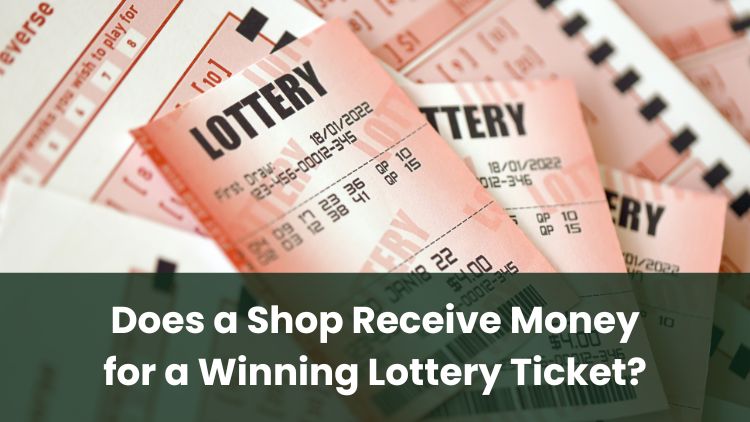
It’s a common question: Does a shop get paid when it sells a winning lottery ticket? The answer depends on the agreement with the lottery operator and the type of win involved.
Some people imagine a big payout for the retailer whenever a jackpot is hit. In reality, retailer payments are structured and modest, with clear rules about when and how commissions are applied.
Below, we look at whether shops receive money for selling a winning ticket, how commissions work, how payments are processed, whether there are limits on winning tickets per shop, and what changes when tickets are bought online.
How Much Do Stores Earn From a Winning Lottery Ticket?
Most retailers earn a standard commission on every lottery ticket they sell. This forms part of the shop’s regular income and is set out in the retailer contract with the lottery operator.
Some operators may also pay an additional commission or bonus when a high-tier winning ticket is sold. These payments are usually fixed or capped and are smaller than many people expect. Smaller prize wins typically do not trigger any extra retailer bonus.
The key point is that commissions are governed by the operator’s terms, not by the shop. Retailers cannot set their own commission rates or decide which wins qualify for extra payments.
Conditions That Determine Store Commissions
Several factors influence whether a shop receives a commission or bonus for a winning ticket. These typically include clear, pre-agreed criteria in the retailer contract, such as:
- The type of lottery game, for example, draw-based tickets or scratchcards
- The value of the prize and whether it falls into a qualifying tier
- Whether the ticket was validated through the retailer’s terminal
- Any operator-run promotions that temporarily increase retailer rewards
Retailers are informed in advance about what qualifies, so there are no surprises after a win.
How Payment Is Processed for Retailers
If a qualifying win is confirmed, the lottery operator verifies that the ticket was sold and, where relevant, validated by the retailer. Payments are then arranged directly with the shop, either as a transfer to the business account or as an adjustment on the shop’s next settlement.
This process is separate from the winner’s prize payout. Shops do not handle large prize claims, and their commission does not come out of the player’s winnings. Operator systems keep full records of sales and validations, so the audit trail is clear and payments follow the retailer agreement.
If you choose to take part in lottery games, set spending limits and use only money you can afford to lose. Licensed operators provide tools and guidance to help you play responsibly.
Commissions raise another question people often ask: Does a shop that sells lots of tickets have a better chance of selling winners?
Are There Limits on How Many Winning Tickets a Store Can Sell?
There are no caps on how many winning tickets a single shop might sell. Draws and instant-win outcomes are managed centrally by the operator, and retailers have no involvement in the selection process.
A busy shop might appear to produce more winners simply because it sells more tickets. That higher volume increases the number of entries passing through the till, not the likelihood attached to each ticket. Selling several winners does not influence future outcomes.
Retailers are neither rewarded nor penalised based on the number of winning tickets they sell. Their payments follow the same commission rules regardless of how many winners pass through their terminal.
With that in mind, what changes when the ticket is bought online rather than in person?
What Happens If a Winning Ticket Is Sold Online Versus In-Store?
If a winning ticket was bought in a shop, the retailer may receive a small commission or bonus when the prize meets the operator’s criteria. Smaller prizes can often be claimed in-store, while higher amounts are paid through the official claims process. In both cases, any retailer payment is handled separately by the operator.
For tickets bought online, the retailer is not part of the sale or validation. The operator manages the entire process, including notifying the player, crediting smaller wins to the player’s account, and arranging the claims journey for larger prizes. No shop receives commission for an online sale because no shop was involved.
Whether the ticket was purchased online or in-store, the operator’s procedures are designed to protect players and retailers.
If you choose to participate, use the tools provided to maintain limits, and keep in mind that all outcomes are determined by the game’s rules and draw procedures.
*All values (Bet Levels, Maximum Wins, etc.) mentioned in relation to these games are subject to change at any time. Game features mentioned may not be available in some jurisdictions.
**The information provided in this blog is intended for educational purposes and should not be construed as betting advice or a guarantee of success. Always gamble responsibly.
